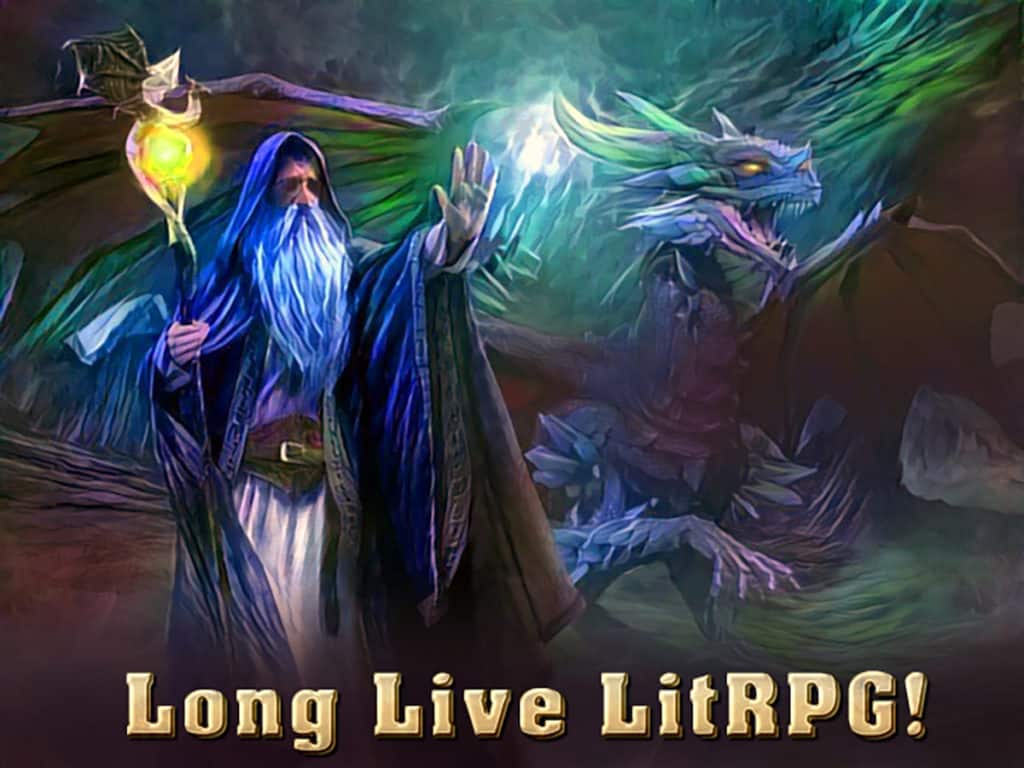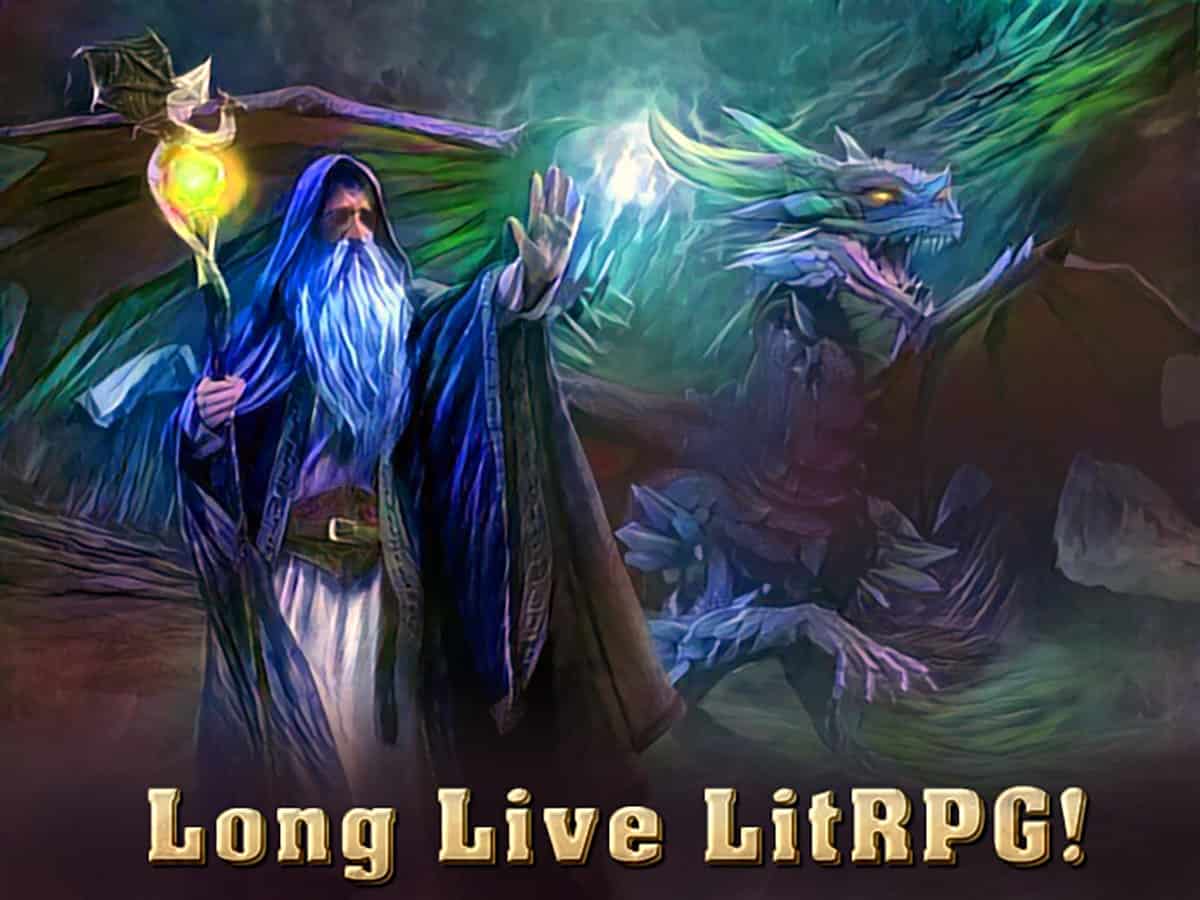New guest post by Kit Falbo on why we like to write and read game-related fiction and how it breaks.
Call it LitRPG, Call it GameLit, call it D&D or video-game fan-fiction if you are so inclined, but game mechanic based fiction is on the rise. The stories and novels created that represent the sub-genre have many passionate fans and authors who find it a joy to read and write about aspects of gaming. But why? Why is it so passionate and fervent?

Be it science fiction, portal fantasy, VRMMO, or many of the Wuxia or dungeon spin-offs that have folded into the genre. It’s a glut of reasons that often overlap and intermingle. The progression structure of leveling up that promotes equality. The nostalgia of the games we are and have played grabbing our attention. The idea that a gamer, like we are, can be the hero. Let’s look at those tropes and aspects we see in this genre and ultimately, how we break or use them.
Break them because often times in this genre, we see the exception to these aspects that help build the story, and that is why we follow them. It is often the opposite side of the coin we see in stories that can catch our attention. The rebel, the rogue, the exception, the rulebreaker. Or we can just have the coin balance on the edge of our expectations as we delve into these game-like worlds.
Equality, the idea that with a robust set of progression and rules for a game-world, that anyone can succeed with either a firm understanding of the rules, hard work, or wits. Isn’t that why playing games is exciting. You put in the work, and you have the chance to get success. The reality is, of course, tricky, dealing with imbalanced, game theory, reaction time. In GameLit it is even worse as this is one of the most often broken tropes of the genre. So much so that breaking it is a trope of its own.
Often the main character is not one among equals fighting to win in the genre. They can get special attention from overpowering AI or gods like in the series Awaken Online and Viridian Gate. They can get unique classes like in Limitless Lands or Stonehaven League. The protagonist can find a powerful item well past their level as in Dodge Tank. Maybe they will do some technique to jump in level fast suddenly. It is actually more common to find the exception rather than the rule which you’ll see in The Wayward Bard, or even my own The Crafting of Chess. Then the reader or writer gets to decide if that is why they want to follow them.
This idea of equality also has other effects on world building. As authors play with the idea that having such structures can create an imbalance of power. Tiered societies where class knowledge and skills are restricted and controlled by families or guilds like with you can see in the books City and the Dungeon or Guild Master. It is often explored, this idea that equal is not really equal as time goes on.
Try my AI Tabletop RPG generators...and an extensive library of content!
Then there are the lesser classes or races. Main characters forced to be the monster, or play the weakest class or weakest race which you’ll see in the books Sentenced to Troll and The Luckless. Gaming only has equality up to a point. Everyone is free to pick the most potent class, play the proven strategy, work the hardest. The forced or selected idea of the underdog and getting good with things other players would consider junk. This is where we take the act of something not working and have it be an exciting part of the story.
The nostalgia of the art of gaming, even just it’s familiarity breeds interest. Be it the classics which we can see not only referenced but a vital part of the story in works like Eight-Bit Bastards. Or old school tabletop role-playing being a core of the story in the works of Homebrew or Critical Failures. We all like to see the sprinkle of our favorite games or aspects of gaming in the stories we follow. Even Streaming becomes a part of the story in books like Viral or my own Intelligence Block, both on the fringe of the genre.
The nostalgia of other parts of nerd culture tends to leak into all the books to some degree, even if it is just in references to other game world books. Like the often used “Gnome’s rule”. We see it in the ’80s faced Ready Player One. Pop culture references in The Land. Though there is a risk of them getting dated or being confusing, we still love to find them in the stories. They can be built in easter eggs, odd coincidences, or random exclamations.
Just the fact that we write and read about game-worlds is an act of nostalgia on what we have and are playing. A connection that is not usually seen, today’s hobby in fantasy and far future sci-fi. The genre is only getting more popular, as readers of any stories want to see aspects of their own lives in the stories.
⚔️ Fantasy RPG Random Tables Books
Make life as a Gamemaster easier…
If you play Dungeons & Dragons, Pathfinder, or other fantasy RPGs, this
RPG random tables series
is packed with encounters, NPCs, treasure, and more. Available in eBook or print—either way, you’ll have a wealth of adventure ideas at your fingertips.
The idea that people want to read about themselves. Gamers wish to read about gamers. In Apocalyptic GameLit, with Shadow Sun Survival, we see advantages given to gamers for their experience. Professional gamers make their mark in books like Lion’s Quest. Even in books where the Main Character only has a little bit of gaming experience like The Good Guys series, we see the advantage of gaming. It makes us feel good about our hobbies and is undoubtedly more relatable for a wider audience than having the main character be an author.
All these aspects of the game related genre’s make them more relatable to their excited fan base and eager authors. The order of the game structure, the nostalgia of our hobbies and interests shared with us, the fact that someone who plays games as we do is the protagonist. These are all things that make us passionate about game related fiction, that and watching how the story chooses to break from our expectations.
About Kit Falbo

Kit Falbo writes and domesticates. Reading to, bathing, driving, picking up after, and loving his family. Skills he uses to write Science Fiction as an independent author who loves the craft of writing.
He currently has two books published; The Crafting of Chess, a LitRPG adventure and Intelligence Block, a Techno-Wizard mystery. Kit Falbo, Born in 1980. Has always loved books, will always love books. Wants to try his hand at making books. Lives in the pacific northwest. Has won no awards…yet.











